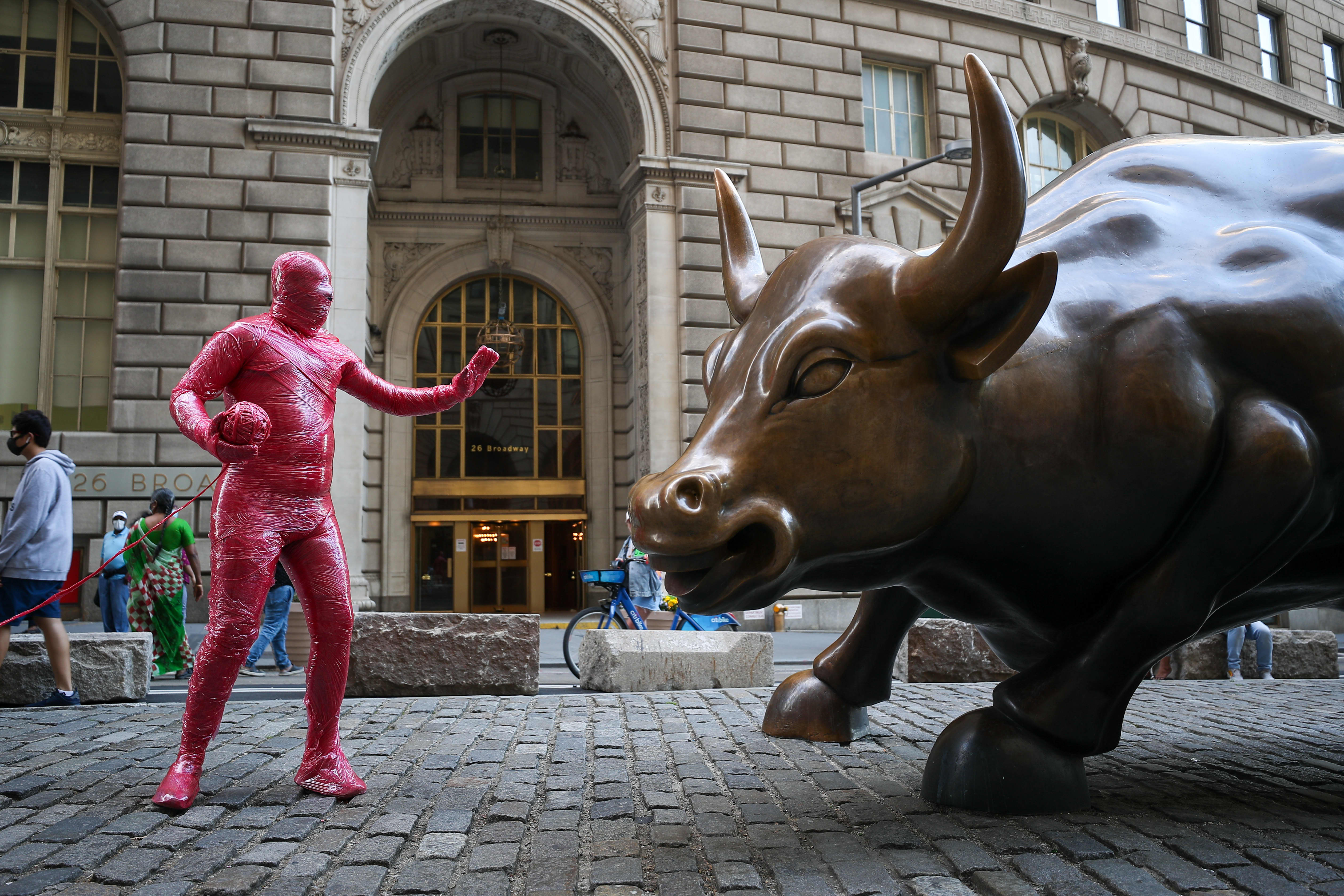
An artist name Theodore Tsinias who wrapped himself next to the Charging Bull to show his attention about world’s behavior amid Covid-19 pandemic in Lower Manhattan, New York City, United States on May 25, 2020.
Tayfun Coskin | Anadolu Agency | Getty Images
U.S. stock futures were little changed on Thursday night as Wall Street weighed the potential for additional fiscal stimulus, news on the earnings and coronavirus treatment fronts while awaiting the final U.S. presidential debate.
Dow Jones Industrial Average futures dipped 18 points, or less than 0.1%. S&P 500 futures slipped 0.1% and Nasdaq 100 futures posted marginal gains.
Intel shares fell more than 9% in after-hours trading following the release of mixed quarterly numbers for the chip maker. The company’s earnings were in line with analyst expectations, but revenue from its data center business fell short of analyst estimates.
Meanwhile, Gilead Sciences gained 4% after the Food and Drug Administration approved the company’s drug, remdesivir, for use as a treatment against the coronavirus.
The Dow and S&P 500 each gained 0.5% during regular trading while the Nasdaq Composite advanced 0.2% after House Speaker Nancy Pelosi signaled she and Treasury Secretary Steven Mnuchin were making progress in their fiscal stimulus negotiations.
“If we were not making progress, I wouldn’t spend five seconds in these conversations. … This is not anything other than I think a serious attempt. I do believe that both sides want to reach an agreement,” Pelosi said.
However, Pelosi also tempered expectations over Democrats and Republicans reaching a deal before the election, saying it could take “a while” for a bill to be written and signed.
Traders have been keeping an eye on Washington in recent weeks as they gauge the prospects for new coronavirus aid to be pushed through. Several market experts and economists, including Federal Reserve Chairman Jerome Powell, think it is imperative that lawmakers reach a deal on another stimulus package.
“Governmental powers are still trying to put together another economic relief package,” said Jim Paulsen, chief investment strategist at The Leuthold Group. “However, despite the July expiration of unemployment benefits provided by the CARES Act, here, two-and-a-half months later, U.S. economic momentum is remarkably healthy.”
Paulsen’s comment came after the release of much better-than-expected U.S. unemployment data on Thursday.
Thursday’s moves came ahead of the second debate between President Donald Trump and former Vice President Joe Biden. The debate is set to start at 9 p.m. ET and will be the last one before the Nov. 3 presidential election.
Biden holds a lead in most national polls heading into the debate as the possibility for a so-called Blue Wave grows. Some market experts a Democratic sweep could lead to a pop in equity prices in the short term. However, legendary hedge fund manager Paul Tudor Jones warned Thursday that this scenario could pressure stocks in the long term.
“I think under a blue wave, and the Biden tax plan, financial assets over the long run suffer a great deal,” he said on CNBC’s “Squawk Box.”
Subscribe to CNBC PRO for exclusive insights and analysis, and live business day programming from around the world.




